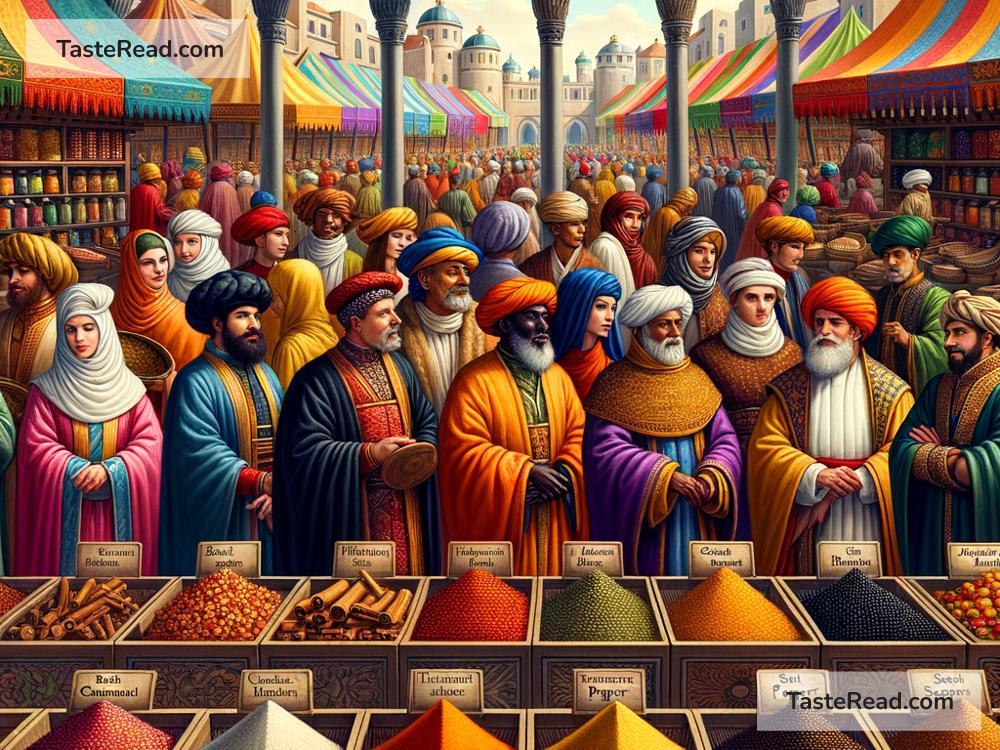How Spices Became Symbols of Power
Spices have been an important part of human history for centuries. Today, they are something we sprinkle on food to make it taste better. But in the past, spices were much more than flavor enhancers—they were symbols of wealth, power, and status. How did simple seeds, bark, or powders come to hold so much significance? Let’s dive into history to understand the incredible journey of spices.
Ancient Beginnings: The Value of Spices
Long before refrigerated trucks or online shopping existed, food preservation was a real challenge. People needed ways to keep their food edible for longer periods. This is where spices came in. Many spices, like salt and pepper, had qualities that helped preserve food. Others, like cinnamon, saffron, and cloves, added delicious flavors to meals, making them more enjoyable. Spices were not just useful; they were scarce. Some spices, such as nutmeg or cardamom, came from faraway lands, and getting them was extremely difficult. This difficulty made spices rare and valuable.
In ancient times, Egypt was one of the first civilizations to use spices. Egyptians used them not only in cooking but also in religious rituals and embalming their dead. When pharaohs were mummified, spices were part of the process, proving how important they were even in death. Spices, in a way, symbolized eternity and divine power.
Spices on the Silk Road
The Silk Road, a network of trade routes connecting Asia, Europe, and Africa, became a major channel for spice trading. Merchants traveled dangerous routes across deserts and mountains to bring spices like black pepper, cinnamon, and ginger to new markets. These spices were often more expensive than gold. Why? Because they came from far-off places like India, Indonesia, and China, and the journey to bring them to Europe was long and dangerous.
As spices reached Europe, kings, queens, and elites were quick to claim them. Having exotic spices on your dining table became a way to show off your wealth and status. If you had spices, it meant you could afford luxury and were part of the rich upper class. Spices were also offered as royal gifts during diplomatic exchanges, further solidifying their role as symbols of power.
The Age of Exploration: Chasing Spices
By the 15th century, Europe was becoming obsessed with spices. Nations like Portugal and Spain wanted to find quicker trade routes to Asia, where many valuable spices were grown. This desire for spices motivated explorers like Vasco da Gama and Christopher Columbus to venture into unknown seas. Their expeditions changed the world, leading to the discovery of new lands, cultures, and trade routes.
When explorers reached regions like India, the Spice Islands (modern-day Indonesia), and the Americas, they realized how rich these places were in spices. Colonizing these areas became a major goal, as controlling spice production meant controlling wealth. The spice trade became a global competition. European powers fought wars over land where spices were grown. They took extreme measures to secure these territories, leading to exploitation of local populations and resources.
Spices weren’t just traded—they shaped entire economies and empires. For example, the Dutch East India Company was established in the 1600s specifically to manage the spice trade. It became one of the most powerful commercial organizations in history, showing how spices had transformed into political tools.
Spices in Religion and Medicine
Besides their culinary and economic importance, spices held spiritual and medicinal value. In many cultures, spices were used in rituals and ceremonies. Frankincense and myrrh, for example, are mentioned in religious texts and were considered holy gifts. These two aromatic spices were even presented to baby Jesus in the Christian nativity story, a testament to their importance.
In medicine, spices like turmeric and ginger were believed to have healing properties. Ayurvedic and Chinese medicine systems used spices to cure illnesses, strengthen immunity, and promote good health. This gave spices a magical aura—the idea that they were not just luxury items but also tools for well-being and spirituality.
The Decline of Spices as Symbols of Power
By the 18th and 19th centuries, industrialization and advancements in transportation made spices much easier to access. They were no longer rare and expensive; ordinary people could now afford them. Spices lost their connection to wealth and power and became everyday items used in kitchens worldwide. However, their historical legacy remains. Spices still remind us of the journeys, wars, and cultural exchanges that shaped our world.
Conclusion
Spices were small, but they had a big impact on human history. From ancient Egypt to medieval Europe, from the Silk Road to the Age of Exploration, spices influenced economies, cultures, and politics. They transformed from simple food enhancers to symbols of wealth and power. Even though spices are now commonplace, their rich history reminds us of the role they played in shaping our modern world.
Next time you sprinkle cinnamon on your latte or add chili powder to your cooking, think about the journey those spices took and the empires they once built. Spices are more than flavors—they are a reminder of human ambition, adventure, and the enduring quest for greatness.


